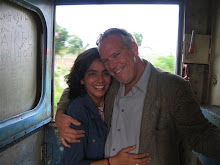
I don't want to give the impression that I wholeheartedly support the music industry just because I don't like the idea that recorded music should be free. Having worked in the industry I can appreciate what they do, but I also see just how badly they have fucked this whole thing up. They share a lot of blame for creating the current fiasco.
1. Prices got out of hand. I remember when CDs first came out, and the industry blamed the high price on lack of manufacturing facilities and high reject rates. This would cease to be a problem in a few years, and then we could expect CDs to gain a price parity with LPs and cassettes. It never happened. They phased out the LP, and jacked up the price of cassettes, and the CD never came down, it just went up.
2. They changed the way they had been doing business. In the glory days, artists were signed thinking long term for a long career. They were nurtured along even if their first few albums didn't sell as hoped. Eventually, this shifted to a "gimme a hit now" mentality, and hits were more important than developing an artist's career. I imagine they made more money this way, but what happened is that marketing became more important than the music, and artists became disposable. The quality of pop music started going downhill.
3. They got too big. When giant corporations bought up the record companies, everything changed. Gone were the days when one person with ears could commit hundreds of thousands of dollars to take a chance on an artist. People who had no experience with records were in charge, and calling the shots. What did Sony know about making music when they bought Columbia Records? Universal made movies and TV, OK, at least that's entertainment, but Motown sure ain't what it used to be.
4. They seriously failed at the internet. If they were going to resort to suing individual downloaders, they should have done it sooner, and made it an all out war. It was too little, and too late, and now everyone refers to it as "suing their own customers." That's absurd in itself, someone caught stealing a physical object in a store is not a customer, he is a thief. They took down napster, but didn't come up with an option for consumers to easily and legally buy music online. It took Apple to come up with that with iTunes, and now the labels are bitching that they don't get to set their own prices anymore. Still, here we are in late 2007, and the majors have come up with bupkis to compete, and it's too late anyway, because no one even wants to pay .99 for a tune anymore when it can be had easily for free.
5. DRM is and was a total failure, a waste of everyone's time, and garnered even more resentment towards the labels. I don't believe in crippling the product, and I don't want some DRM scheme to keep me from moving legitimately bought music from one device to another. Dumb.
OK, they fucked up. Does that still mean that no one should have to pay for music? I've read a million posts where people say they will never buy another thing from the RIAA, but indie labels are getting screwed too. And the artists. Over half of the people who downloaded Radiohead's album didn't pay shit.
So, even though the record industry helped create this situation, downloaders use their "outrage" as a weak justification to continue to help themselves to someone else's hard work without paying a dime for it.






